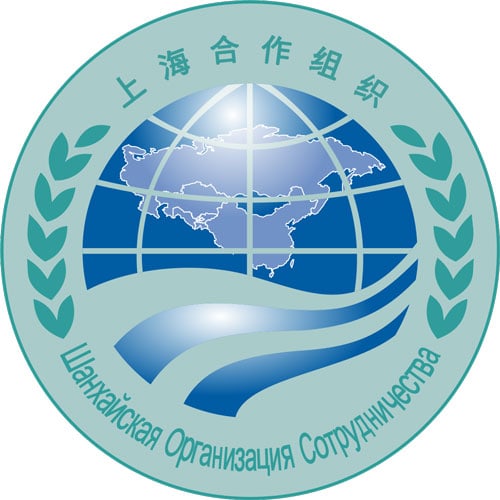The two-day Council of Foreign Ministers of the Shanghai Cooperation Organization (SCO) began Friday in Tashkent, the capital of Uzbekistan.
Some countries in the SCO expressed their concern about what they consider to be the possibility of terrorist threats from Afghanistan.
The foreign ministers of China, India, Pakistan, Kazakhstan, Russia, Kyrgyzstan, Tajikistan, and Uzbekistan will talk about significant regional and international issues during this summit, including regional security challenges.
The Minister of Foreign Affairs of the Republic of Tajikistan, Sirojiddin Muhriddin, said that with the fall of the previous government in Afghanistan, better conditions have been provided for the activities of terrorist groups.
“We are all concerned about Afghanistan, because terrorist groups still operating in better conditions there, and their actions pose a serious threat to the countries of Central Asia because they have also led to drug trafficking. The Shanghai Cooperation Organization should act immediately on this issue,” Muhriddin said.
Sergey Lavrov, the foreign minister of Russia, on the sidelines of the Council of Foreign Ministers of the Shanghai Cooperation Organization (SCO) said that Russia will work closely with Uzbekistan to find solutions to Afghanistan’s problems.
“Today we stated that these efforts (of Uzbekistan), the efforts of the Russian Federation within the framework of the so-called Moscow format, the efforts of the People’s Republic of China, which regularly holds meetings of Afghanistan’s neighbours, are all complementary work. With each such event, we take several steps forward. We have a very close position with our Uzbek friends regarding the need to recognize the current realities in Afghanistan and work with the current leadership based on these realities,” Lavrov said.
These concerns are raised as Amir Khan Muttaqi, Afghanistan’s acting foreign affairs minister, is now in Uzbekistan following the Tashkent International Summit on Afghanistan.
“The government of Afghanistan has not gained legitimacy from the world, that is why the current officials have failed to satisfy the world in this regard,” said Ahmad Khan Andar, political analyst.
This week, the city also hosted the Tashkent International Conference on Afghanistan with the participation of 20 countries and international organizations.
Meanwhile, the China- and Russia-led bloc, the Shanghai Cooperation Organization (SCO) held its 20th Council of Heads of States summit in Tajikistan which was attended by over 12 countries both physically and virtually.
Economic cooperation among the member states and Afghanistan’s situation were the pivotal topics of the summit.
Although Afghanistan holds an observer status at SCO, this year no one was invited from Afghanistan to the meeting.
“At this round, due to lack of a recognized government by the international community, Afghanistan was not invited to this summit. I think this is bad news for Afghanistan’s economic and regional relations,” said Asif Mubaleqh, a university lecturer.
Tajikistan President Emomali Rahmon at the summit said his country expects the Taliban to form an inclusive government. “The political, ethnic and lingual diversity and also gender equality have not been considered in the interim cabinet that the Taliban has announced. This means, in the next two to three years the extremism ideology will increase and it is possible that this destructive ideology will multiply in the neighboring countries,” he said.
Russian President Vladimir Putin, who joined the summit virtually, criticized the foreign forces’ withdrawal from Afghanistan and urged the SCO member states to talk about dealing with the situation in Afghanistan.
“Now our organization is facing an acute task of pursuing a common, agreed line, taking into account the serious risks associated with the aggravation of the situation in Afghanistan after the hasty withdrawal – well, it can be even called an escape – of the US forces and their NATO allies from this country,” Putin said.
Indian Prime Minister Narendra Modi also voiced his country’s concern over the rise of extremism in the region, adding that the recent transformations have added to the concerns.
“I believe that the biggest challenges in this area are related to peace, security and trust-deficit and the root cause of these problems is increasing radicalization,” he said.
Uzbekistan President Shavkat Mirziyoyev meanwhile urged the international community to facilitate dialogue with the Taliban, adding that releasing the frozen assets of Afghanistan could pave the way for talks. “Considering the humanitarian situation, we propose looking into the possibility of lifting the freeze on Afghanistan’s accounts in foreign banks,” he said.
Pakistan Prime Minister Imran Khan also said his country wants an inclusive government to be formed in Afghanistan and called on the international community to support Afghanistan economically.—Tolonews









